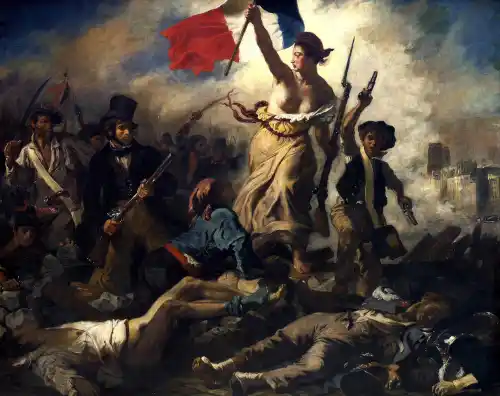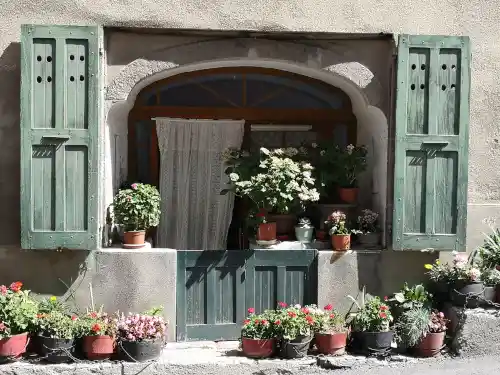Professional French Translation Services
Halifax provides professional French translation services, to and from all languages.
French document translation and editing, certified French translation, French interpretation, simultaneous or consecutive – we provide all language services. We translate into French and we translate French to English, Chinese, Spanish, German, Italian, Russian, Korean and many other languages. Our prices are among the lowest you will find for a reliable professional French translation service.
French is the third most frequent language we deal with. This august language of nineteenth century diplomacy has a special place for us. Geopolitically it is still the most important Romance language, the only language besides English spoken on all continents and one of the six official languages of the United Nations.
French language services
We offer complete French translation services including:
- French document translation
- Certified professional French translation
- Revision, editing or proofreading of French documents
- Conversion of French documents
- French interpretation, online or live
- Video / audio translation & transcription to and from French
- Desktop publishing
We offer the most cost-effective professional French translation services you will find. Read about translation rates here or get a quote.

French translation – a translator’s view
We asked one of our translators to tell us something about the language she studied at university and has worked with professionally for over 20 years. Here is what she told us.
What challenges do you face when you translate or interpret French?
I work with professional French translation every day. Being a translator does not just mean speaking two or more languages. It means knowing how to interpret messages as intended in the original language, keeping in mind the intended audience, topic and purpose of the document or speech to be translated. When I translate English to French or vice-versa, I have to take social, political and historical factors into account, and above all the context and development of the languages in the modern age.
One of the greatest challenges for me personally is dealing with idioms, because finding the origin and understanding the meaning of a particular phrase, and then finding the right idiom in my own language, often takes time, sometimes enough to translate a whole page of more familiar text. But this can be solved with thorough research (especially if you know where to look).

As a translator, you need to have knowledge and experience to work in a range of industries – a legal, advertising or medical document or a seminar paper will not use the same terminology, so it is essential that the structure and vocabulary are carefully chosen for the audience, country or purpose. Most important of all in translation is not to be literal: an ‘accurate’ translation with no meaning is useless!
(Look at this delightful video that shows two children explaining idioms.)
What is special about French compared with other languages?
French has strong similarities with the other Romance languages, and has also donated many words to other languages, especially English, though it may not seem so at first glance. (When you translate English to French or the other way round, you have to watch out for these, because they seem to mean the same at first glance, but can have subtle but sometimes critical differences of meaning.)
On the other hand, French has its own peculiarities, especially in its pronunciation, which are sometimes challenging for none-native speakers. Take for example the famous French letter “r”. Though well-known, watch out for it in a phonetic exam: whether it is pronounced or not (the obvious difference is how this letter is clearly heard in the accentuated dire (to say), and almost never heard in pardon). What’s more, the “r” will sound different depending on where the speaker is from: Paris, Marseille, or Haiti.
For the ‘believe it or not’ section, French has 16 vowel sounds (as opposed to just five in e.g. many Slavic languages). There is an open and a closed ‘e’, a ‘u’ that sometimes sounds like an ‘i’ (a kind of whistle), but also an “u” that is pronounced just like most foreigners would expect. Then most French vowels are spelled in various ways – so au, eau, o and ô all sound the same. Many of these vowels include nasals, pronounced through the nose… The last letter is generally not pronounced, but sometimes associated with the next word if it begins with a vowel. We also have the letter ‘h’, which can be mute or aspirated, depending on whether the previous word binds or does not: l’histoire (binding), but le haricot (no binding)! Thanks to this rule we can distinguish, for example, les héros (heroes) – from les zéros (zeros). However, there is no rule to judge whether an ‘h’ is silent or aspirated, you just have to know each case.

Do you have any more interesting facts about French?
What is the first thing you learn in a new language? The alphabet. In French there are 26 Latin letters and one of them is ‘w’. But no French word contains this letter. There are a few borrowings (western, wagon …), but not a single word of French origin.
The student of French may be surprised by its numbers. France is the home of Cartesian logic and the metric system, the internationally adopted SI units. So we would expect the language, to reflect this. But no, unlike les rosbifs (the English) with their logic-defying miles, furlongs, pints and stones, the French numbering system is still partly based on the medieval score, a measure of twenty. Up to number 69, everything is fine and dandy, but then we have seventy – soixante-dix, which means sixty-ten. And when you get to 80, it’s quatre-vingts, or four-score. The winner is of course 99 – quatre-vingts-dix-neuf: four-twenties-ten-nine! Why?
Funnily enough, les Belges (the Belgians), whom the French associate mostly with frites (deep-fried potatoes), and the highly conservative people of la Suisse Romande have moved beyond this anachronism, using words like septante (70) and nonante (90). All without the guidance of the authoritative central academy enjoyed by French French.

And the history of French?
French is a Romance language (the group of languages derived from Latin), of Indo-European origin. If you follow its history you will see how its linguistic development has come about through historical changes unrelated to language. As the Roman empire expanded, the Celtic Gauls learned Latin like everyone else who had to deal with Roman soldiers or merchants. But little by little their form of Latin developed to eventually become incomprehensible to those who spoke the Latin of Cicero. This language was influenced by German and Frankish invaders, but all of the conquerors replaced their own languages with that of the country they had conquered. The most important were the Franks, a Germanic-speaking people who invaded the Western Roman Empire in the 5th century. Their language progressively became French.
Until the middle ages, France was a country of many dialects: Alsatian, Breton, Basque and others. Wishing to impose greater unity, in 1539 King François I ordered French to be the official language of the court and administration) throughout France. In 1635 the infamous Cardinal Richelieu, the first minister of King Louis XIII, founded the French Academy, whose primary function was, and remains, to perfect the French language and make its usage uniform.
Today’s vocabulary contains about 80 words left from Gaelic. They are mostly connected to rural life. From Gaelic today we have, for example, bouc (goat), mouton (sheep), chêne (oak), ruche (hive), cervoise (beer) … By contrast French has about 400 words retained from Germanic origins: they mostly concern institutions, especially military ones: maréchal (marshal), ambassade (embassy) etc.
French is an official language in France, Belgium, Luxembourg, Monaco, Canada, Switzerland and 45 other countries around the globe. It is a mother tongue is for over 110 million people, with more than 220 million speakers overall. Although it takes third place after Spanish and Portuguese in numbers of native speakers, French is still geopolitically speaking the most important Romance language. Since the 18th century, French has enjoyed a reputation as the world’s diplomatic language.
But as French replaced Latin, so English began to replace French already from the 19th century, with the rise of the British empire followed by the USA in the 20th century. French, however, is today the only language spoken on all continents besides English, and one of the six official languages of the United Nations, so professional French translation continues to be important.
France
If you are unfamiliar with France but would like to know more about it, try reading Alex Waltner’s Swedish Nomad blog, there are a lot of interesting snippets about the country.

